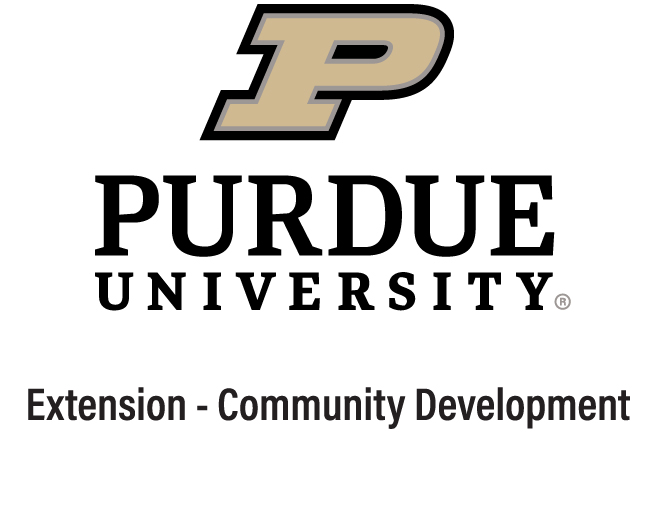TASC - Taking Action to Address Substance Use in Communities
Taking Action to Address Substance Use in Communities has been developed by a team of health professionals and Extension professionals from Purdue University, the University of Illinois at Urbana-Champaign, and The Ohio State University to provide a theoretical framework for Extension professionals as they work with communities to create a collaborative approach to addressing substance use disorder. The waning and irregular access to treatment providers in rural areas, combined with a need to increase efforts to help individuals with SUD enter recovery, calls for community-based approaches that increase collaboration among community organizations and individuals involved with substance use prevention, treatment, and recovery support.
This Signature Program is recommended for communities that may not be using all their resources, have a shortage of treatment providers, experience significant barriers to recovery, or wish to take a more proactive stance on substance use and develop an effective community-based intervention to augment and collaborate with existing recovery resources. This program will provide the necessary tools for an Extension Educator to serve a community - as a non-stakeholder facilitator - to create a Recovery Oriented System of Care.
Program Description
Taking Action to Address Substance Use in Communities (TASC) is a process that:
Gathers information
TASC starts by gathering information about the community! Defining the scope of existing coalitions, as well as assessing the local recovery ecosystem. TASC collects qualitative and quantitative information to describe community conditions, trends, and resources; and list organizations involved in recovery support.
Gathers stakeholders
TASC brings together stakeholders who are invested in addressing substance use in the community or are willing to become involved. There are many ways to reach out to community members, including hosting or attending town hall meetings, holding community conversations, or contacting agencies, such as the local health department, that are actively addressing substance use.
Identifies a core group
Oftentimes, there will be a group(s) in the community addressing substance use disorder (SUD) and recovery. Members are a great source for the TASC core group. The TASC core group must include members who have a wide range of beliefs, experiences, and perspectives to ensure that the group represents various perspectives and is respectful of differences across a variety of characteristics.
Defines and clarifies stakeholder expectations
TASC helps to build the framework around which the coalition will form: a recovery-oriented system of care organized via a complex adaptive system. Stakeholders will discuss the assets they can invest in creating the coalition, and relationships among organizations will be created, strengthened, or formalized.
Builds capacity
With clear stakeholder expectations, TASC core group members begin to identify gaps in coverage and strengthen relationships. For many stakeholders, this marks the point at which long-held attitudes and behaviors must change, such as how competing agencies interact with one another. The TASC facilitator works to build processes for interaction and decision-making that will enable the group to work together. Cooperation builds capacity!
Develops action steps
The initial push requires considerable attention from the entire TASC team. The first TASC projects should be quick wins: projects that show results in 60 to 90 days, which instill confidence, build momentum, and improve relations among coalition members by encouraging collaboration.
Maintains momentum
With TASC working to address gaps in services, the TASC team might serve as a sounding board for community interaction, helping members share information, engage all segments of the community, make decisions from an objective perspective, recognize contributions, celebrate success, and engage members with differing perspectives.
Sustains the Coalition
TASC works intentionally to help TASC core group members assume more responsibility for facilitation, leadership, and management of the network, eventually leading to the handing off of leadership and facilitation to the TASC core group. In some situations, this transition in responsibility has taken a year to complete.
Program Goal
TASC is an interdisciplinary program developed for Extension Educators to lead coalitions through the process of fostering robust community-based recovery-oriented systems of care.
Target Audience
Communities wanting to create effective and sustainable recovery-oriented systems of care.
To learn more, contact a member of the team below.
Dr. Michael Wilcox
Assistant Director and Program Leader for Community Development / Purdue Extension, Associate Director / North Central Regional Center for Rural Development (NCRCRD), Community and Regional Economics Specialist / Dept. of Agricultural Economics / Purdue University
wilcox16@purdue.edu
Nicole Adams, PhD, RN, CEN
Associate Research Professor / Purdue University Regenstrief Center for Healthcare Engineering and RWJF Nursing and Health Policy Fellow
adams417@purdue.edu
TASC Handbook, Curriculum and Resources
Local Groups Collaborate to Address Substance Use Recovery
Harm Reduction Brief, by Elisa Worland 4/4/2024
The Intersection of Community Development and Recovery-Oriented Systems of Care
Using the Housing First Model with Non-Violent Drug Offenders: Community Action Approach



